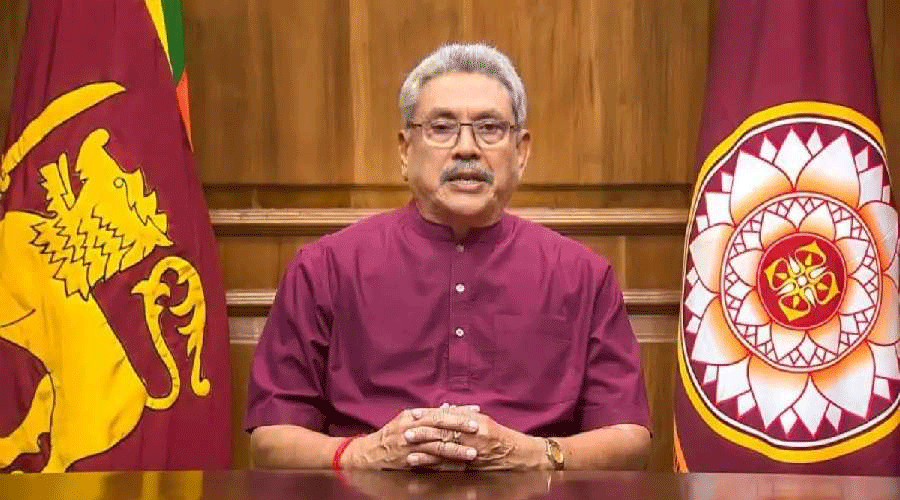Sri Lanka’s president submitted his resignation Thursday shortly after reaching Singapore, the parliamentary speaker’s office said, days after the head of state fled protests triggered by his country’s worst-ever economic crisis.
Gotabaya Rajapaksa resigned by email, the speaker’s spokesman said hours after he landed in the city-state after protesters overran his palace on the weekend.
- Osun election: It is not our duty to stop vote-buying, says INEC Commissioner
- 2023: Muslim-Christian presidency hasn’t taken us anywhere – Oshiomhole
Rajapaksa fled to the Maldives on Wednesday and left there for Singapore a day later.
“The authenticity and the legality of the e-mail will have to be checked out” before being formally accepted, Indunil Yapa told AFP, adding a formal announcement was expected on Friday.
Rajapaksa would be the first president to resign since Sri Lanka adopted a presidential system of government in 1978.
As president, Rajapaksa enjoyed immunity from arrest, and he is believed to have wanted to go abroad before stepping down to avoid the possibility of being detained.
Under Sri Lanka’s constitution, Prime Minister Ranil Wickremesinghe – whose resignation is also being demanded by protesters – would automatically become acting president until parliament can appoint a successor.
Rajapaksa, his wife Ioma and their two bodyguards arrived in Singapore from Male on board a Saudia airline flight.
Singapore’s foreign ministry confirmed Rajapaksa had been allowed to enter the city-state for a “private visit”, adding: “He has not asked for asylum and neither has he been granted any asylum.”
A handful of Sri Lankans was waiting in one of the airport’s arrival areas to voice their anger at Rajapaksa and the economic crisis engulfing their homeland.
“I want to scold him with all the words that I know,” said a Sri Lankan design engineer working in Singapore, who identified himself only as Max.
“He’s responsible for everything that happened in our country,” he told AFP.
Singaporean authorities were quick to warn against protests – it is illegal for even one person to stage a demonstration without prior official permission in the tightly-controlled territory.
Rajapaksa is expected to look to stay in the city-state for some time, according to Sri Lankan security sources, before potentially moving to the United Arab Emirates.

 Join Daily Trust WhatsApp Community For Quick Access To News and Happenings Around You.
Join Daily Trust WhatsApp Community For Quick Access To News and Happenings Around You.


